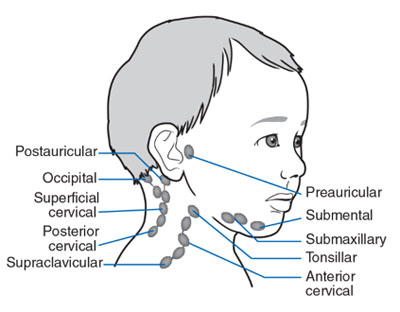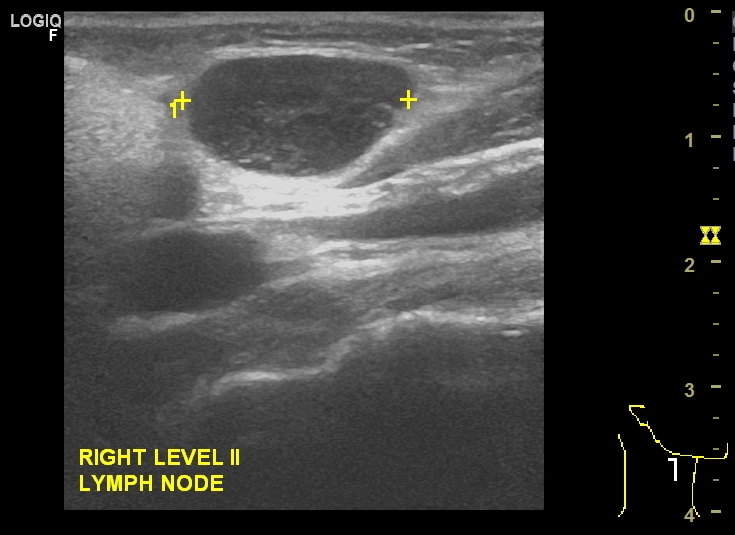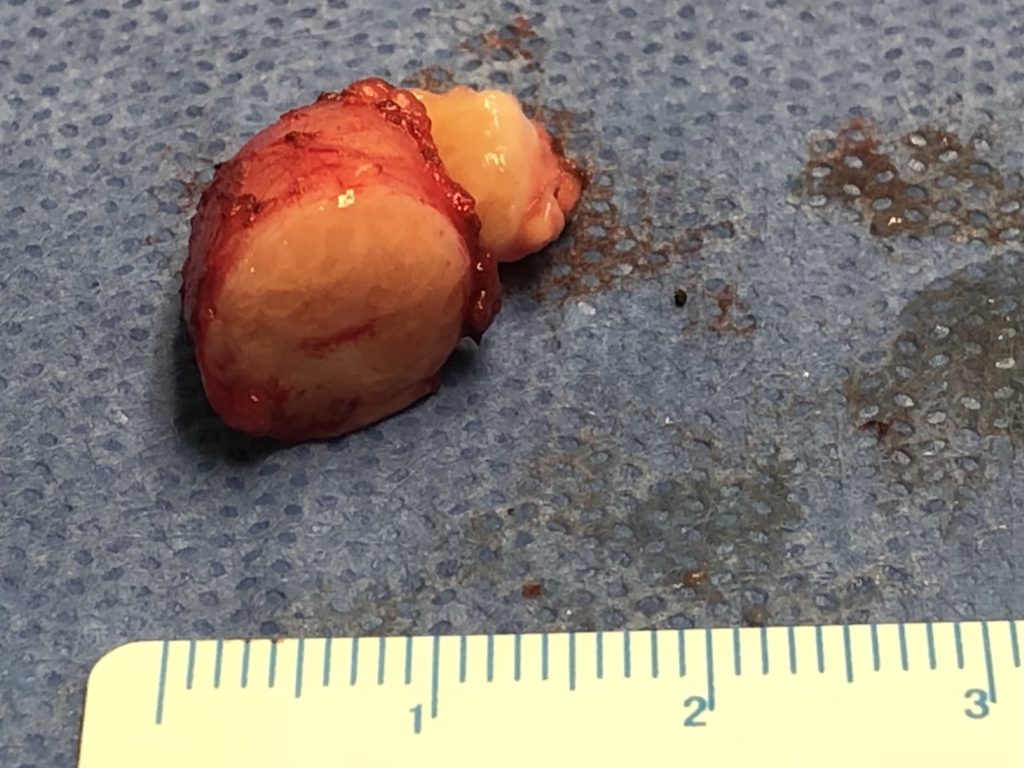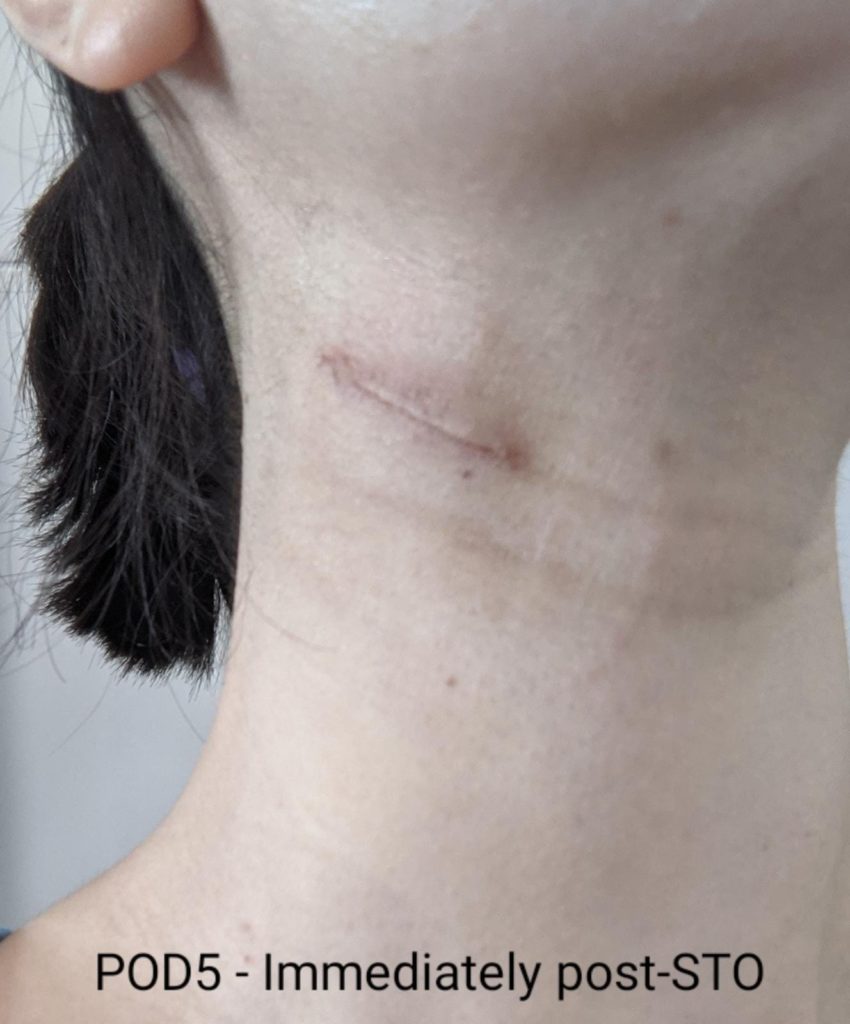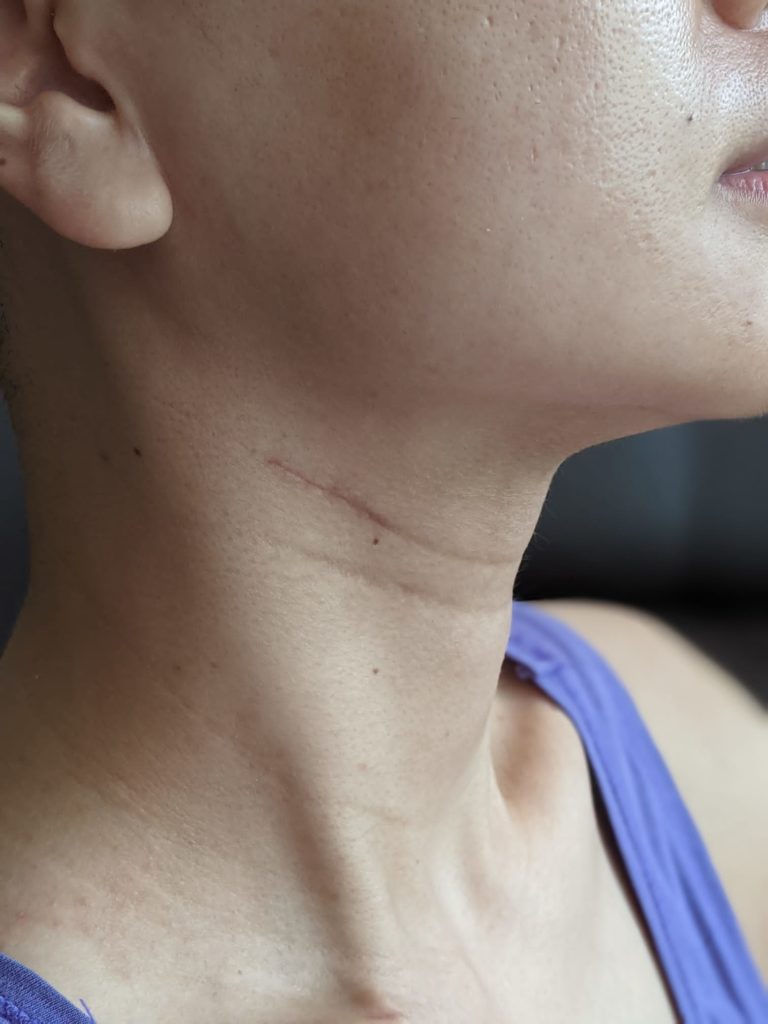Swollen lymph nodes in the neck
Swollen ‘glands’ in the neck are a common ENT problem. These ‘glands’ are more correctly lymph nodes. The human body has several thousand lymph nodes. They are part of the immune system. These lymph nodes are key in the generation of immunity against infections.
The neck contains hundreds of lymph nodes. These are often arranged in chains running down the front and sides of the neck. Anyone who has had a sore throat or tonsilitis will have experienced swelling and mild discomfort in the lymph nodes of the upper neck. Often patients will say their “glands have flared up”.
What may cause lymph nodes to swell?
There are many reasons for a lymph node to swell. These include:
- Infectons – viral (such as glandular fever), bacterial or tuberculosis (TB)
- Eczema or atopic dermatitis of the skin of the scalp
- Inflammatory conditions – Kawasaki’s disease, Kikuchi’s etc.
- Lymphomas – primary tumours of the lymph nodes
- Metastatic disease – cancers from elsewhere in the head and neck spreading to the draining lymph nodes
I often asks patients of associated symptoms that may give me a clue as to the cause of their lymph node enlargement. For example, a recent history of a blocked or runny nose, fever and cough may suggest that lymph nodes have enlarged due to a simple respiratory tract infection.
In recent times, a common cause for enlarged lymph nodes is recent vaccination with an mRNA Covid vaccine.
When should you be worried about enlarged lymph nodes?
Some symptoms or signs are reasons to have a specialist consultation for enlarged neck lymph nodes. These include:
- Persistent enlargement of one or several lymph nodes without an obvious cause e.g. a cold
- Presence for more than 2-4 weeks without signs of resolution. Most general practitioners will try a course of antibiotics initially. Failure to respond to antibiotics warrants a specialist consultation
- Nodes that are firm or rubbery
- Pain – this often points to an infection or inflammation. Pain after consumption of alcohol is said to be a feature of Hodgkin’s Lymphoma
- Spiking fevers, nights sweats (often drenching) and unexpected weight loss
It is important to seek the right specialist to evaluate your enlarged neck nodes. A Ear, Nose and Throat Specialist (ENT) is best placed to see patients with enlarged neck lymph nodes because we are in a position to evaluate the upper aerodigestive tract (nose and throat) with endoscopy for a source of these enlarged lymph nodes. One common cause of neck node enlargement in the neck amongst adults is nose cancer and this can only be identified with nasal endoscopy.
How are enlarged neck nodes managed?
A thorough history is an important part of the management of enlarged lymph nodes in the neck. This is a checklist to run through with your doctor – it is not exhaustive but if any of these are present, do highlight it.
- Onset and duration of the neck node
- The presence of nodes elsewhere such as your groin or armpit. These are areas doctors often fail to examine
- Pain or restricted neck movement
- Recent illness or vaccination
- Fever
- Night sweats
- Loss of weight or appetite
- Bruising
- Dental infections or recent dental treatment
- Flare ups of any skin problems – eczema or psoriasis
- Foreign travel
- Exposure to animals e.g. cats
- Smoking
- Family history of nose or thyroid cancer
Your Ear Nose and Throat (ENT) Specialist will want to examine your head and neck thoroughly, and include nasal endoscopy as part of his/her assessment. Bloods tests, a chest x-ray and an ultrasound scan of the neck may be necessary as part of the work up.
A needle biopsy may be necessary in some instances and this can give us a diagnosis based on the cells extracted from the lymph node. In many circumstances, a lymph node may need to be removed so that a definitive diagnosis is achieved.
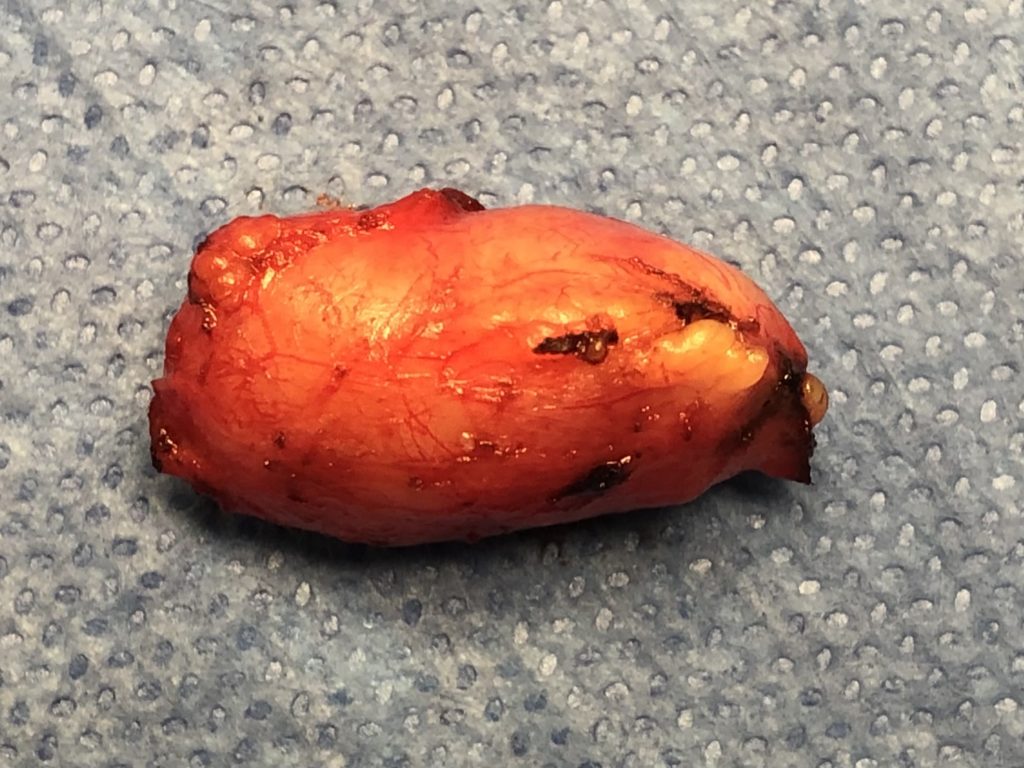
The operation to remove an enlarged neck node is often done under a general anaesthetic as a day case procedure. I usually use an incision placed in a skin crease so that the results scar is less perceptible. It is not a painful operation. The risks are few and rare but include unexpected bleeding following surgery, infection, damage to nerves causing numbness or weakness.
Share this blog via:




